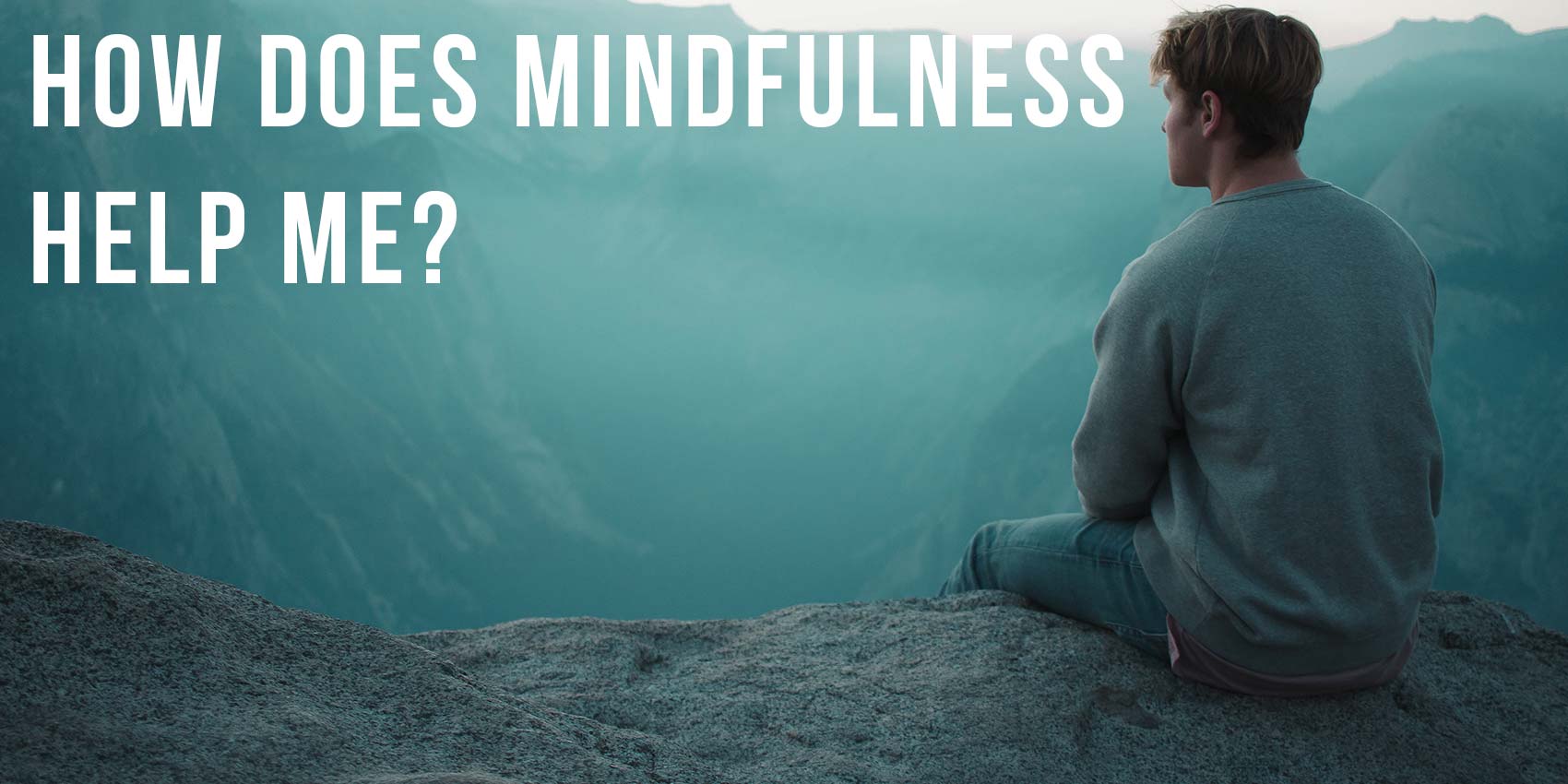03 Mar How does mindfulness help me?

Mindfulness is a way to stay focused in the present because too often our minds become cluttered with the distractions of modern life. Just like Harrison, many people may feel overwhelmed at times. Ask yourself: How much time do you spend thinking about the past? How much time do you spend worrying about the future? A lot? Well that’s totally normal!!! But we don’t want to forget about the present because the present matters too. We want to be able to enjoy and live fully in the present moment and this is what mindfulness helps us to do.
People who regularly practice mindfulness will tell you how much more in control of their lives and calm it makes them feel. But don’t just take their word for it. Scientific research shows that mindfulness makes people happier and healthier; it lowers blood pressure and cortisol levels, increases immune response, improves sleep and even enhances creativity. (source: https://mindfulnessinschools.org/wp-content/uploads/2013/02/MiSP-Research-Summary-2012.pdf)
In fact for people suffering from depression, when mindfulness was combined with CBT (cognitive behavioral therapy – the best known counseling treatment for depression), the combination resulted in the same improvements that would have been seen from taking an antidepressant.
Not enough proof that mindfulness works? Well how about actual changes in your brain? MRI scans (Magnetic Resonating Images – like a super x-ray without the nasty side effects) show that meditating for a half hour daily can increase grey matter density (our brain cells) in an area essential for focus, memory and comprehension. Prior research showed monks (who have meditated for approximately 10,000 plus hours) had extraordinary growth and activity in this part of the brain.
But how exactly can mindfulness help you in your daily life? Mindfulness helps the average person to stay on task because it trains the brain to stay focused. Moreover, it helps the average person to be less controlled by his/her thoughts, which in turn causes a decrease in anxiety and stress.
In fact 163 studies show that mindfulness lowers anxiety levels. How? Largely by being able to stay focused on the present moment and to not be controlled by negative thoughts. Mindfulness teaches the brain that when a negative thought pops into your head, you don’t have to be overwhelmed by it. Instead, it becomes just another thought, one that you can choose to pay attention to, or one you can ignore. Settling the mind like this changes, for the better, the actual size of the brain area that promotes fear, anxiety and paranoia – the amygdala. Yes, you read that right – mindfulness helps shrink the area of your brain that promotes anxiety! (Source: https://blogs.scientificamerican.com/guest-blog/what-does-mindfulness-meditation-do-to-your-brain/)




wlkhs2314
Posted at 15:02h, 02 MarchI control the negative thoughts in my head by taking a break and strolling outside. I drink cold water to calm myself down. Taking strolls helps control negative thoughts because it diverts your thoughts and makes you forget about the negative thoughts.
WLKHS2319
Posted at 15:02h, 02 MarchWhat I do to control the negative thoughts in my head is, I will think of all the positive things in my life or happy memories I have been able to create.
wlkhs2303
Posted at 15:01h, 02 MarchTo control the negative thoughts in my head, I think about things in my life that aren’t negative. Hopefully, the positive thoughts overtake the negative thoughts.
WLKHS2301
Posted at 15:00h, 02 MarchUsually when there is a negative thought in my head, I try to ignore it and let something else take over that thought. However, if the thought is making me super stressed or anxious I take deep breaths and start to think about better outcomes.
wlkhs2311
Posted at 14:58h, 02 MarchI try to block out any negativity in my life and just think about positive things. I also try to remember to tell myself that you only live once so make the most of it. I think of things that make me happy so all negativity is blocked out.
wlkhs2307
Posted at 14:58h, 02 MarchI talk to my therapist, my school phycologist, or even a friend or trusted adult. If I’m not able to get to those resources, I draw or listen to music. Take a break from what I’m doing so when I go back to the task at hand I’m not stressed.
WLKHS2317
Posted at 14:57h, 02 MarchI try to think logically about them and find a way to eliminate them, either by shutting them down or trying to find a way to work around them so that I can feel more at peace knowing that that particular negative thought has been addressed.